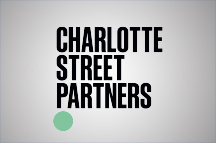On a dock in Alexandria, Egyptian inspectors crouch over pallets of Scottish seed potatoes. These spuds, grown in Angus and shipped out through Grangemouth, are an unlikely global ambassador. While the tattie trade doesn’t often make headlines, this low-key consignment to North Africa - representing 60% of our global seed exports - sustains laboratories, logistics firms and agricultural jobs across Scotland.
The popular picture of the Scottish export scene is dominated by the heavyweights of whisky, salmon and energy. And quite rightly, we love to celebrate the landmark deals: the billion-pound investment, the new plant, the presidential handshake.
But beneath the surface is a network of intricate relations supplying Scotland’s less feted global exports.
The seed potato industry's success owes less to luck or soil and more to decades of collaboration between farmers, scientists, inspectors and shippers. Scottish seed potatoes have a global reputation for disease resistance, thanks to generations of expertise paired with recent advancements in precision agriculture technologies. The sector’s strength lies not in one spectacular deal but in the infrastructure that makes hundreds possible.
And potatoes are only one example. Silica sand from Lochaline in Argyll, Europe’s only underground sand mine, becomes the glass in skylines across the continent’s capitals. Specialist engineering firms supply subsea components to communications and energy projects in Brazilian and Canadian waters. Even Irn Bru sells in vast quantities across Africa and the Middle East.
None of these industries may ever rival the whisky industry in size, but together each of these exports sustains an area of national capability - a producer, a warehouse, a relationship with a buyer on the other side of the world. They show that Scotland’s trade success isn’t a series of isolated triumphs but a living ecosystem whose health depends on variety, interconnection and depth.
The same rings true for reputation. Credibility isn’t simply won in a single high-profile announcement but earned through small, interconnected acts that prove consistency over time.
While economists call this the network effect, Scots have a simpler saying: ‘mony a mickle maks a muckle’. In other words, many a little makes a lot.
Strictly speaking, the proverb is a linguistic muddle, with both ‘mickle’ and ‘muckle’ originally meaning ‘much’.
Yet perhaps the misquote tells its own story about how we communicate success. Over time we’ve come to emphasise the ‘muckle’ - the large and spectacular - at the expense of the ‘mickle’ - the small and steady.
The confusion itself mirrors how public attention is, understandably, drawn to scale. Big numbers, big characters and ribbon cuttings undoubtedly attract headlines.
Our policy language doesn’t help either. We talk about ‘growth deals’ and ‘flagship investments’ as though progress comes only in leaps, never incrementally.
In a world fixated on the spectacular, Scotland’s strength - and that of its businesses – can be amplified by better communicating the steady. Each small export, each trusted relationship, each dependable delivery adds to a collective reputation that is far more resilient than any landmark mega-deal.
Whether your trade takes the form of a Teams call from Glasgow or a container of potatoes leaving the Firth of Forth, speaking more about our ‘mickles’ may help us tell a truer, stronger story about Scotland’s place in the world.
- Previous Article
- Article Navigation
- Next Article
-

The power of the ‘mickle’ for Scotland’s reputation
- Date: Friday 7th November 2025
- Posted in: Industry News, Opinion Pieces
- Previous Article
- Article Navigation
- Next Article











